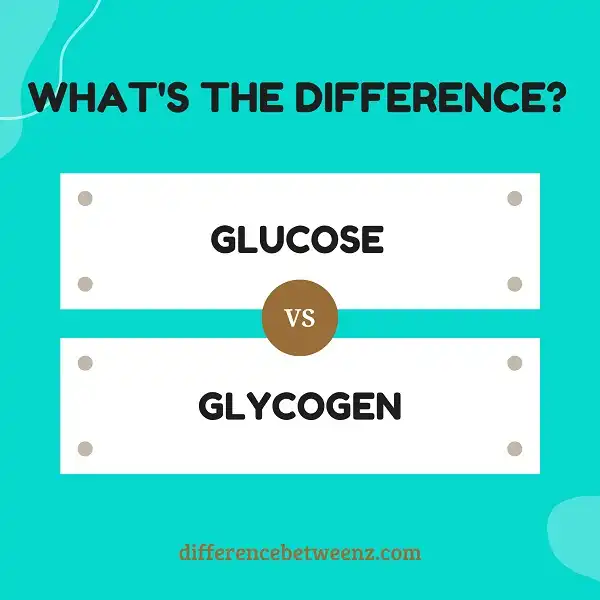You may have heard that glucose and glycogen are two different types of sugar, but what do they really mean? What is the difference between them, and how do they affect your body? In this post, we’ll break down everything you need to know about glucose and glycogen. By the end, you’ll be able to understand how these sugars work in your body and why they’re important for optimal health.
What is Glucose?
- Glucose is a type of sugar that your body uses for energy. Your body breaks down carbohydrates into glucose and then uses that glucose for energy. Glucose is also found in fruits, honey, and some vegetables. When you eat foods that contain carbohydrates, your body breaks them down into glucose and uses them for energy.
- Glucose is essential for your body to function. It is the main source of energy for your cells, and it is necessary for your nervous system, kidneys, and heart to function properly.
- Too much or too little glucose in your blood can be dangerous. If you have too much glucose in your blood, it can damage your nerves and blood vessels. If you have too little glucose in your blood, it can make you feel tired and weak.
- Your doctor can test your blood sugar levels to see if you have diabetes or prediabetes. If you have diabetes, you will need to take steps to control your blood sugar levels. This may include taking medication, eating a healthy diet, exercising regularly, and checking your blood sugar levels often.
What is Glycogen?
- Glycogen is a type of sugar that is stored in the liver and muscles. It is sometimes called “animal starch” because it is similar to the starch that is found in plants. Glycogen is made up of many glucose molecules that are bonded together. When the body needs energy, glycogen is broken down into glucose and used for fuel. Glycogen is an important energy source for athletes because it can be broken down quickly to provide energy during exercise.
- Glycogen is stored in the liver in small amounts and in the muscles in larger amounts. The liver stores glycogen so that it can be released into the blood when needed. The muscles store glycogen as a ready source of energy for contraction.
- During exercise, glycogen is broken down to provide glucose for energy. The body can only store a limited amount of glycogen, so it is important to eat foods that contain carbohydrates before and during exercise to maintain blood sugar levels and prevent fatigue.
- Glycogen is also an important storage form of glucose in the body because it can be rapidly converted to energy when needed. This makes glycogen especially important for athletes who need quick bursts of energy during competition.
Difference between Glucose and Glycogen
Glucose is a simple sugar that is found in many foods. It is also the body’s main source of energy. Glycogen is a more complex sugar that is made by the liver and stored in the muscles. When the body needs energy, glycogen is converted back into glucose. Both glucose and glycogen are essential for the body to function properly. However, there are some key differences between them.
Glucose is typically consumed through diet and is used by the body for immediate energy needs. Glycogen, on the other hand, is stored in the liver and muscles for use during times of extended physical activity. Additionally, glycogen is broken down more slowly than glucose, providing a longer-lasting source of energy. Ultimately, both glucose and glycogen are important for the body to maintain proper energy levels.
Conclusion
Glucose and glycogen are two different types of energy that the body uses. Glucose is the simplest form of sugar, while glycogen is a complex carbohydrate. The body breaks down glucose to release its energy, while glycogen is broken down into glucose molecules to release its energy.
Most of the time, when we talk about “sugar” or “carbohydrates”, we’re actually talking about glucose. However, it’s important to know the difference between these two types of energy so that you can make informed decisions about what foods to eat and how they will affect your performance.


